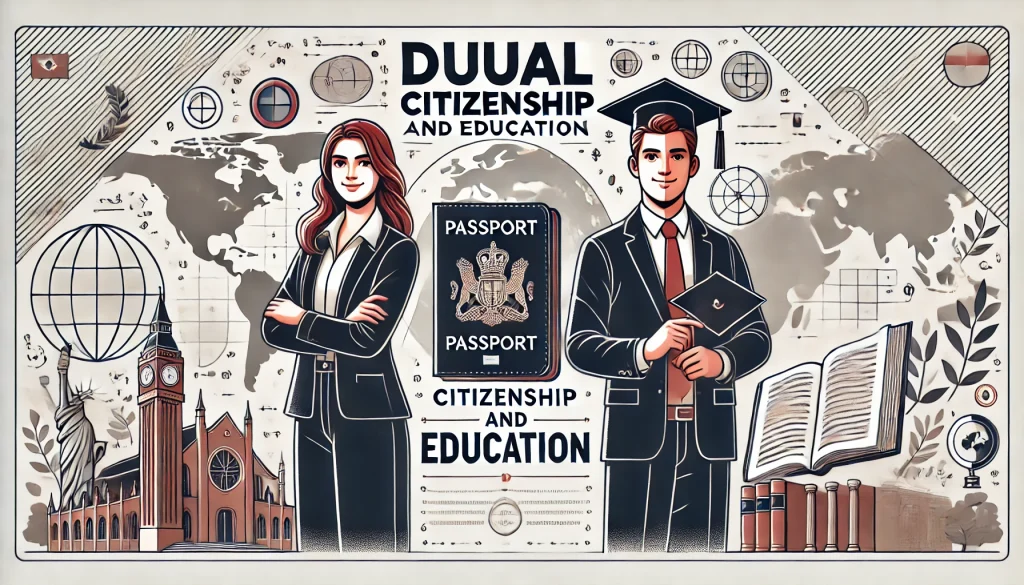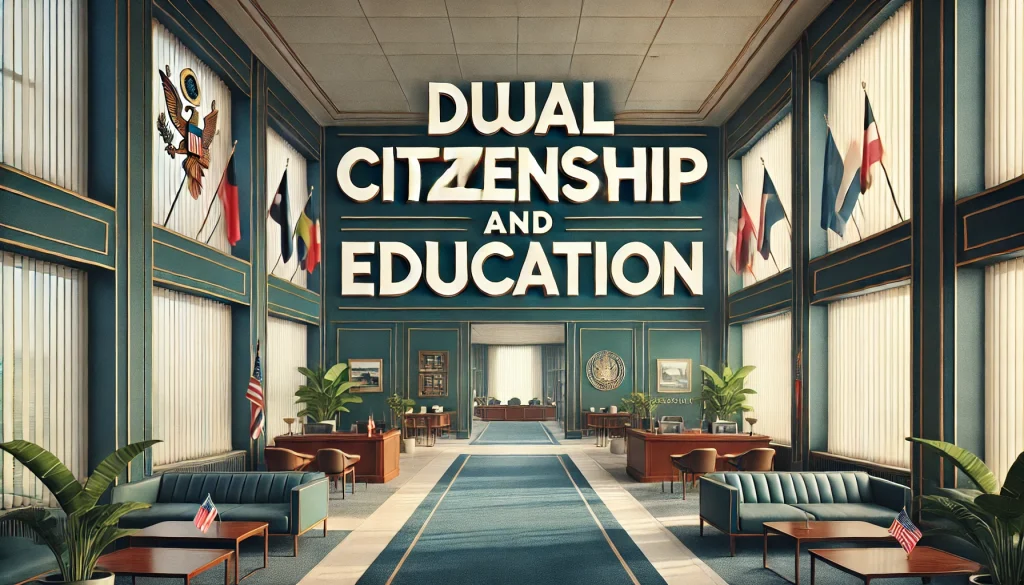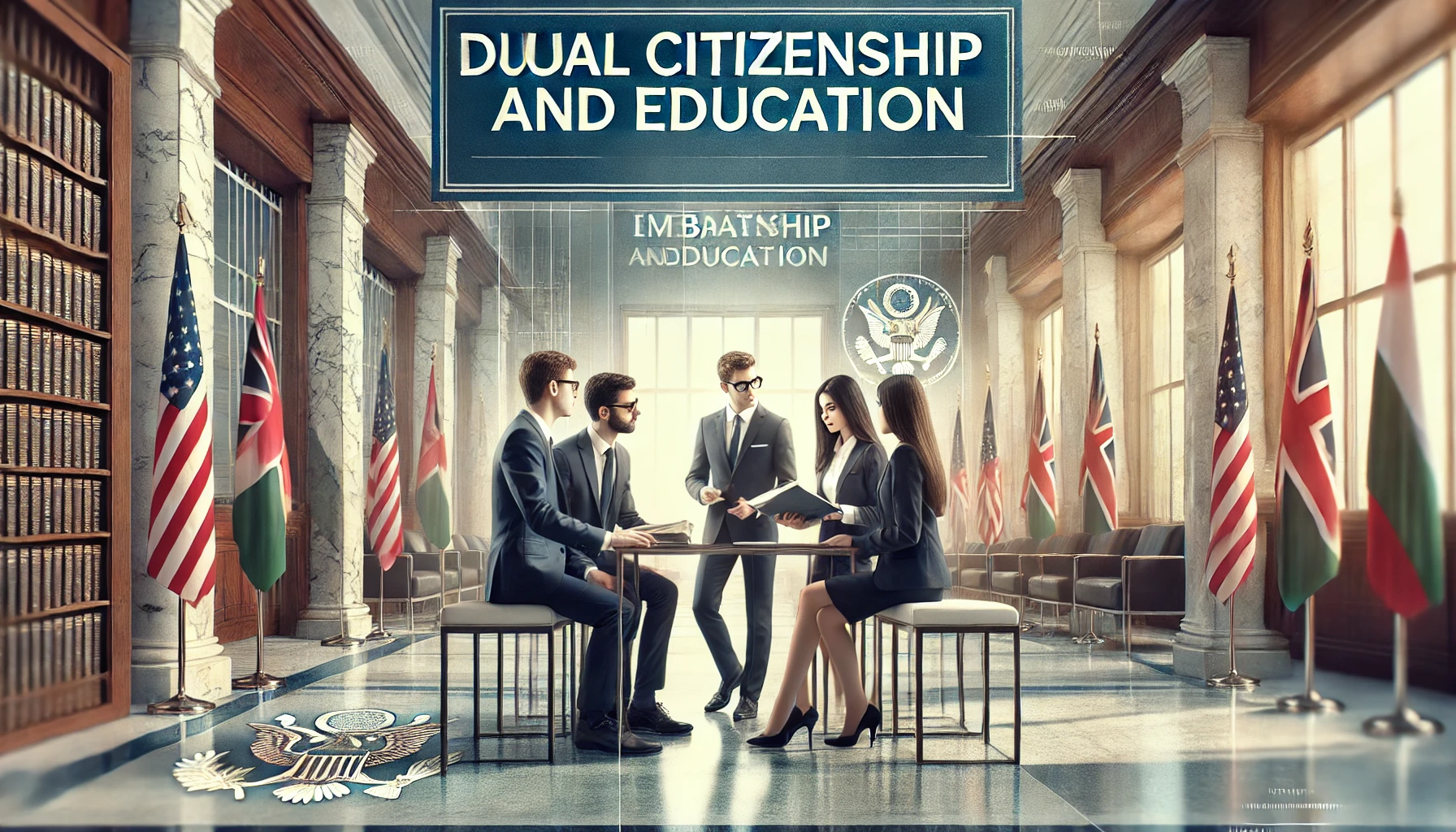Imagine living in two different worlds! Having dual citizenship and Education allows people to belong to two countries at the same time. For students and families, this can open doors to exciting educational opportunities. But what does dual citizenship really mean, and how can it benefit young people’s education? Let’s explore!
What Is Dual Citizenship and Education?
Dual citizenship and Education means a person legally holds citizenship in two countries. For example, someone could be both a citizen of the United States and Canada, which means they get the benefits of both places. Different countries have different rules about dual citizenship, so it’s important to know the rules if you’re interested.
You can find out more about dual citizenship rules in different countries or the benefits of being a citizen in two countries.
How Do People Get Dual Citizenship?
People can become dual citizens in several ways:
- Birth – If a child is born in a country that gives citizenship by birth, but their parents are from another country, they could automatically be a citizen of both countries.
- Marriage – Sometimes, marrying a person from another country can lead to citizenship options.
- Naturalization – This process involves applying for citizenship in a new country, often after living there for a certain period.
- Descent – Some people inherit citizenship if their parents or grandparents were born in another country.
To learn more about the legal process for dual citizenship, check out legal information on dual citizenship and naturalization.
Why Dual Citizenship Matters for Education
Having dual citizenship can give students access to more educational opportunities, which can be a big advantage.
- Access to Public Education in Two Countries
Dual citizens may have the right to attend public schools in both countries. For example, a student with U.S. and Mexican citizenship could attend school in the U.S. or Mexico. - Lower Tuition Fees for Citizens
In some countries, citizens pay less tuition than international students. For example, in the European Union (EU), students from any EU country often pay lower rates at public universities across the EU. A dual citizen from France and the U.S. could attend a French university for a lower fee. Read more on how dual citizenship affects university tuition costs. - Study Abroad Opportunities
Having two citizenships can also make it easier to study abroad. Dual citizens often have fewer travel restrictions, making it easier to live and study in another country. - Financial Aid and Scholarships
Some scholarships and financial aid programs are only available to citizens. By holding dual citizenship, students may be eligible for financial support in both countries, which can reduce education costs.
Explore various scholarships available in different countries at Scholarship Positions.
Challenges of Dual Citizenship and Education
While there are benefits, dual citizenship also comes with challenges:
- Different Educational Standards
Each country has unique education systems and standards. Moving between countries can mean adjusting to different teaching methods or even learning a new language. - Residency Requirements
Some universities have residency requirements for reduced tuition. This means that a dual citizen may need to live in the country for a certain period to qualify for lower costs. - Taxation on Student Aid
Dual citizens might be taxed in both countries, especially if they’re earning income or receiving student aid in one place while living in another. This can get tricky for families to manage financially.
Find resources to understand how taxes apply to dual citizens for students studying abroad.
Financial Benefits of Dual Citizenship for Education
Getting an education can be expensive, so dual citizenship can offer families a break in costs.
- Tuition Savings
As mentioned, dual citizens may qualify for in-state or citizen tuition rates, which are usually lower than international rates. For instance, studying in Canada as a citizen can be more affordable than attending a U.S. university. - Government Aid Programs
Dual citizens may also access government-funded education aid in two countries, depending on residency requirements.
- Pell Grants (USA): For low-income students studying in the U.S., Pell Grants offer up to $7,395 for the 2023–2024 academic year.
- Erasmus+ Scholarships (EU): The Erasmus+ program offers grants for EU citizens studying in Europe, covering travel, tuition, and living costs.
Explore Erasmus+ study options for European Union citizens.
- Lower Travel Expenses
Students who are dual citizens often have easier access to passports, which can reduce visa and travel expenses when moving between their countries.
Check out more travel tips for dual citizens studying abroad.
Is Dual Citizenship Right for Your Family?
If your family has the option for dual citizenship, it’s essential to weigh the benefits and challenges. Dual citizenship can offer financial advantages, more educational opportunities, and make it easier for students to explore different cultures.
Some questions to consider:
- Will your family move between the two countries frequently?
- Are there financial benefits, like scholarships or reduced tuition, that dual citizenship can provide?
- Are there challenges with adjusting to different education standards?
Read this guide to deciding if dual citizenship is worth it for your family.
Exploring Educational Opportunities with Dual Citizenship

Dual citizenship is not just about reduced tuition or access to public education. It can also create unique cultural and professional experiences that are highly valuable for young learners. Let’s dive into how this dual identity can further enrich educational journeys.
1. Cultural Exchange and Language Skills
Living or studying in two countries exposes students to different languages, cultures, and lifestyles. This exposure builds language proficiency, making students more competitive in a global job market. Bilingual or multilingual skills are highly valuable, especially in fields like international business, diplomacy, and healthcare.
Dual citizens in the U.S. and a Spanish-speaking country, for instance, could benefit from early language immersion. For resources on bilingual education benefits, explore Bilingual Kidspot.
2. Global Internship Opportunities
Many universities have internship programs that are available to citizens only. With dual citizenship, students can explore internship opportunities in both countries, which can offer valuable work experience and networking opportunities. For example, students with EU citizenship can join internships in any EU country without additional visas or permits, which simplifies the process and increases options.
Learn more about international internships and programs in Europe.
3. Post-Graduation Employment Benefits
After graduation, dual citizenship can help students access a broader job market. Many countries prioritize their citizens for employment, making it easier to work and settle in the country after completing studies. Additionally, dual citizens often have fewer restrictions on work permits, allowing them to take on part-time or full-time jobs during and after their education.
To find out about job markets and employment requirements in different countries, visit Expatica’s employment guides.
How to Apply for Dual Citizenship and Education
If you’re interested in pursuing dual citizenship, it’s crucial to research each country’s requirements. Some countries allow dual citizenship freely, while others might require you to renounce the original citizenship. Let’s go through a basic outline of the application process.
Steps to Apply:
- Check Eligibility Requirements: Research the requirements for both countries, including any conditions tied to residency, family descent, or marriage.
- Gather Necessary Documents: This often includes birth certificates, passports, proof of residency, and possibly proof of financial stability.
- Submit Application Forms and Fees: Each country has its own application forms and fees. Fees vary widely:
- U.S. Naturalization: Approximately $725 for the application fee.
- EU Citizenship (e.g., Portugal): Costs can vary; residency-based applications in Portugal may cost around €300–€500.
- Wait for Processing: Dual citizenship applications can take months or even years, depending on the country.
- Attend Interviews or Citizenship Tests: Some countries require applicants to pass a language or history test to demonstrate commitment to the new country.
For detailed information on citizenship costs and timelines, visit VisaGuide.World’s citizenship process page.
Practical Tips for Dual-Citizen Students

Navigating two countries while studying can be complex. Here are some practical tips for dual-citizen students to make the most of their educational opportunities:
- Stay Organized with Travel Documents: Make sure you have passports, visas, and IDs ready for both countries. It’s a good idea to keep digital copies of these documents on a secure cloud platform.
- Research Healthcare and Insurance Options: Different countries have different healthcare policies. Check if your citizenship entitles you to free or discounted healthcare, or if you need travel insurance.
- Build Connections in Both Countries: Try to build friendships and networks in each country, as this will be valuable for future academic or professional opportunities.
- Prepare for Currency and Banking Differences: If you’re living in two places, setting up bank accounts in each country can make it easier to manage finances and avoid international transaction fees.
Learn more about dual-citizen student tips at Go Overseas.
Dual Citizenship and Education and Long-Term Opportunities
Dual citizenship doesn’t just benefit students during their school years; it opens up a lifetime of possibilities. It allows individuals to seamlessly transition between two countries for education, work, and even retirement. With two passports, dual citizens enjoy freedom of movement, diverse work options, and a more adaptable lifestyle.
Here are a few common fields where dual citizenship can be a particular advantage:
- International Business: Many companies value employees who understand multiple markets and can navigate different cultural expectations.
- Healthcare: Dual citizens with medical training can help bridge healthcare gaps between countries, bringing valuable insights and practices from one country to another.
- Education and Research: Dual citizens in academia can collaborate across countries, contributing to international research projects and sharing educational resources.
For more information on how dual citizenship can impact future career paths, check out World Nomads’ global career tips.
Conclusion: The Power of Dual Citizenship in Education
Dual citizenship offers many benefits to students, including broader educational opportunities, cultural immersion, and financial advantages. It also comes with responsibilities and challenges, like managing multiple sets of rules and adapting to different educational standards. With good planning, however, dual citizenship can become a strong foundation for a student’s future, helping them succeed both academically and professionally in a globalized world.
Whether you’re considering dual citizenship for yourself or your family, take the time to research your options and explore all the educational, financial, and career opportunities it can offer. This unique privilege can truly enrich a student’s journey and provide lifelong benefits.
Final Thoughts on Dual Citizenship and Education
Dual citizenship can be an incredible opportunity for young students, opening doors to diverse educational paths and financial aid. With proper planning, dual citizenship can become a valuable asset for students and families alike.
For more information, you can visit government websites on dual citizenship and explore educational options in your family’s countries.

